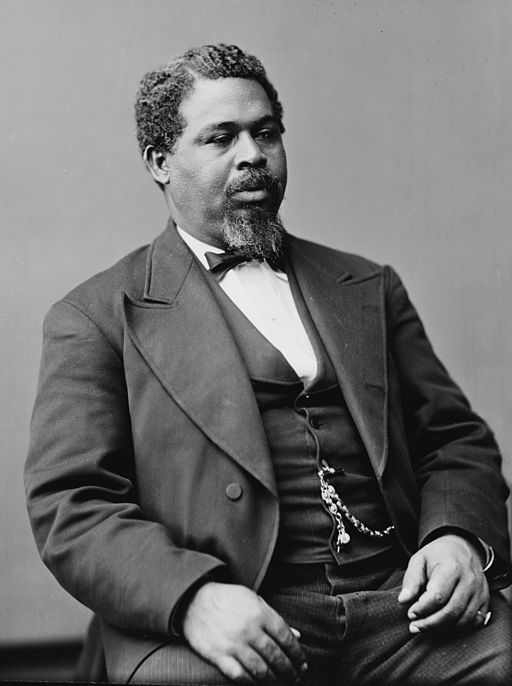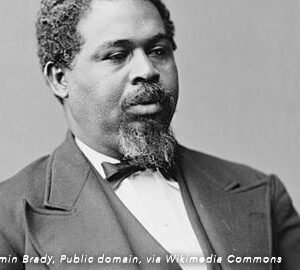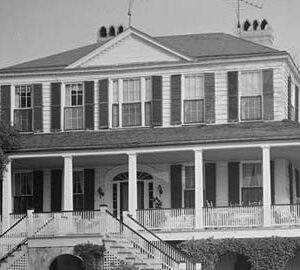Robert Smalls, Pt. 3: After the Civil War (A Continuation from Beaufort.com’s February 12th Article)

Smalls’s position in the Union Army and Navy has been disputed and Smalls’s reward for the capture of the Planter has been criticized.
During Smalls’s life, articles about Smalls state that during his assignment to pilot the Planter, the Navy did not allow him to hold the rank of pilot because he was not a graduate of a naval academy, a requirement at that time. To assure he received proper pay for a captain, he became second lieutenant of the 1st South Carolina Volunteers (later re-designated as the 33rd US Colored Infantry) and detailed to act as pilot. Many sources also state that General Gillmore promoted Smalls to captain in December 1863 when he saved the Planter when it was under attack near Secessionville.
Later sources state that Smalls did receive a commission either in the Army or the Navy, but he was likely officially a civilian throughout the war. In 1865, his salary as “commander” of the Planter was given in a newspaper as $1,800 (equivalent to $30,432 in 2020); he and the Planter were in Charleston harbor with the Union ships in 1865 and transported from shore all the African Americans who wanted to attend the flag-raising ceremony at Ft. Sumter.
Later in his life, when Smalls sought a Navy pension, he learned that he had not been officially commissioned.
He claimed he had received an official commission from Gillmore but had lost it. In 1883, a bill passed committee to put him on the Navy retired list, but in the end was halted, allegedly due to Smalls being black. Then in 1897, a special act of Congress granted Smalls a pension of $30 per month, equal to the pension for a Navy captain.
In 1883, during discussion of the bill to put Smalls on the Navy retired list, a report stated that the 1862 appraisal of the Planter was “absurdly low” and that a fair valuation would have been over $60,000. However, Smalls received no further payment until 1900. That year, Congress passed a statute paying Smalls $5,000 less the amount paid to him in 1862 ($1,500) for his capture of the steamship. Many still felt that this was less than his due.
Immediately following the war, Smalls returned to his native Beaufort.
He purchased his former master’s house at 511 Prince St. Later, the former owner sued to regain the property, but Smalls retained ownership in the court case. The case became an important precedent in other, similar cases. His mother, Lydia, lived with him for the remainder of her life. He allowed his former master’s wife, the elderly Jane McKee, to move into her former home prior to her death. Smalls spent nine months learning to read and write. He purchased a two-story Beaumont building to use as a school for African-American children.
Business ventures
In 1866 Smalls went into business in Beaufort with Richard Howell Gleaves, a businessman from Philadelphia. They opened a store to serve the needs of freedmen. Smalls also hired a teacher to help him study. That April, the Radical Republicans who controlled Congress overrode President Andrew Johnson’s vetoes and passed a Civil Rights Act. In 1868, they passed the 14th Amendment. Ratified by the states, the amendment extended full citizenship to all Americans regardless of race.
Smalls invested significantly in the economic development of the Charleston-Beaufort region. In 1870, in anticipation of a Reconstruction-based prosperity, Smalls, with fellow representatives, formed the Enterprise Railroad. This 18-mile horse-drawn railway line carried cargo and passengers between the Charleston wharves and inland depots.
Except for one white director (“Carpetbagger”, Timothy Hurley), the railroad’s board of directors was entirely African American. Richard H. Cain was its first president. Author Bernard E. Powers describes it as “the most impressive commercial venture by members of Charleston’s black elite.”Smalls owned and helped publish a black-owned newspaper, the Beaufort Southern Standard starting in 1872.
“Robert Smalls Pt. 4: The Plotician,” to be posted on February 26th, continues this series of articles on Robert Smalls.
Source: https://en.wikipedia.org/




